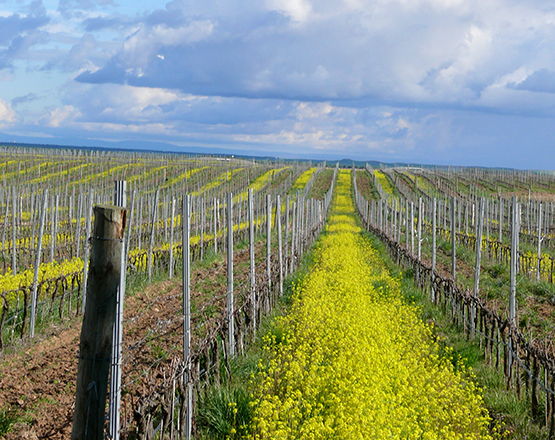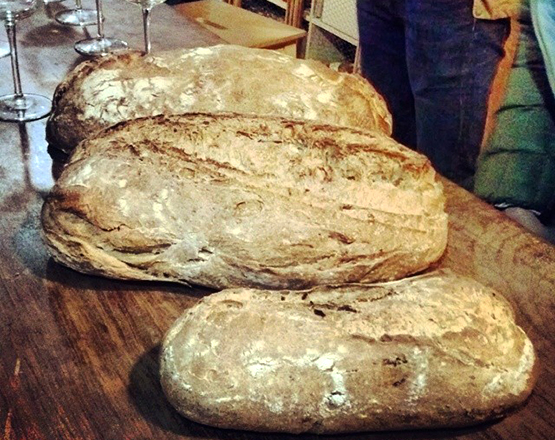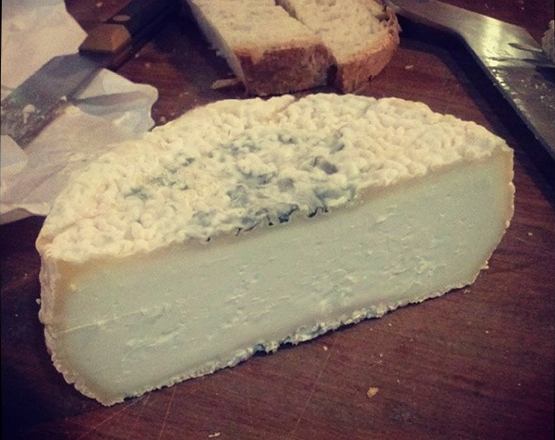¿Nunca has tenido la sensación de estar asistiendo a una pequeña revolución? A mi me pasó hace unos días, en el corazón de Castilla, y ha sido una de esas experiencias que han cambiado mi forma de ver el mundo gastronómico contemporáneo. Porque las revoluciones no tienen por qué ser masivas, globales, llegar a todos los rincones del planeta. Las hay de otro tipo, más silencioso, más callado, que va cambiando las cosas desde abajo, desde la base, asentando los cimientos para cambios más amplios, para nuevas formas de ver las cosas.
Esa sensación de aire fresco, de que algo se está gestando ante tus ojos, es especialmente agradable en un sector como el gastronómico, en el que tanto se está dejando notar la crisis y en el que cierres, recortes de plantilla y redefiniciones del modelo de negocio son cosa, lamentablemente, del día a día. Y lo es aun más cuando no aparece donde uno se la esperaría. No está, en este caso, asociada a un vivero de empresas, a grandes ciudades ni a grupos de inversión a la caza de ideas innovadoras.
Medina del Campo. Poco más de 20.000 habitantes en medio de Tierra de Campos. En su día fue un nudo ferroviario importante y una de las capitales españolas de la industria del mueble. Hoy ni el tren ni la venta de muebles pasan por su mejor momento, por lo que uno llega a la zona cargado de ideas preconcebidas. Pueblos de 40, de 20, de menos de 10 habitantes, distancias enormes de un núcleo a otro, una población envejecida y una tierra dura para el cultivo.
Y sin embargo pasan cosas. Rubén, de Granja Cantagrullas (hablaremos de él con más detalle en otro texto dedicado al mundo del queso) es nuestro guía a lo largo de los días que pasamos allí. Su granja está a la afueras de Ramiro, un pueblo que en invierno cuenta con ocho habitantes. Allí ha invertido, con su familia, en levantar una pequeña quesería artesana y allí vive, atado a los ritmos del pastoreo y del ordeño, dejando que sean los quesos quienes marquen los tiempos.
El siguiente pueblo hacia el sur es Gomeznarro. 20 habitantes y un obrador de pan y repostería, Pecado Artesano, abierto en 2010. La casualidad quiso que durante las obras de reforma del local apareciese una caja con un antiguo recetario de dulces locales. Hoy son parte de la oferta de la tahona, que trabaja en recuperar la tradición casi desaparecida del pan artesano en la zona.
A las afueras de Medina, en la carretera de Olmedo, se toma un desvío cerca del cementerio para llegar a las viñas de Finca Las Caraballas, un pequeño proyecto ecológico en el que trabajan Jesús y Esmeralda, berciano y segoviana, para producir un blanco vallisoletano al margen de los tópicos que rodean la D.O. Rueda, defendiendo una personalidad y un estilo propio de hacer las cosas y peleando por colocar ese pequeño punto en el mapa de los vinos españoles de calidad.
De vuelta al pueblo, a un paso de la Plaza Mayor, aparece una de las tiendas de queso más sorprendentes que conozco. Sorprendente por la calidad de su oferta y por el cuidado en la conservación, pero sobre todo por estar donde está. Hasta donde yo sé no hay muchas tiendas en España con ese nivel de atención al producto y con un catálogo tan interesante de referencias queseras, más de 70 de toda Europa, algunas nada habituales por esta parte del mundo. Si dejamos a un lado las dos o tres referencias básicas en Madrid y Barcelona me atrevería a decir que Los Quesos de Juan es una de las dos o tres tiendas españolas que más y mejor miman el queso. Y eso en una ciudad de 20.000 habitantes.
¿Qué pasa para que en una comarca de 20.000 habitantes alejada de las grandes ciudades se dé este momento de efervescencia? Algo está cambiando, está claro. Hay un mayor respeto por los productos y por los productores. Una vez que se ha ganado la lucha para dignificar el oficio de cocinero parece que el próximo objetivo es elevar la categoría del elaborador, del artesano que dedica su tiempo a alcanzar la excelencia. Ese es el gran cambio.
Volver a los pueblos no es ya una derrota. Es, en cierta medida, un nuevo modo de victoria. Es la recuperación del orgullo por el trabajo artesanal, la reivindicación de un cambio en los ritmos de vida. Es, en última instancia, el deseo de querer dedicar tu tiempo a ofrecer el mejor producto posible a los demás, sin intermediarios, sin presiones comerciales. Simplemente tú, tu producto y quien lo disfruta.
No hablo de quesos, ni de vinos, ni de pan ni de comercio minorista. Hablo del orgullo de apostar por productos de verdad, por eliminar eslabones en la cadena que va del productor al consumidor. Hablo de nuevas maneras de ver las cosas, de proyectos que tienen la capacidad de ir transformando su entorno, enriqueciéndolo, haciéndolo más diverso y más vivo. Hablo de productos que son mucho más que un sabor o una textura, que son capaces de ponernos ante los ojos otra forma de entender la producción gastronómica.
Todo esto está pasando allí, en medio de la Meseta, en pueblos con un puñado de casas y una decena de habitantes. La sensación, tras haber pasado unos días conociendo estos proyectos, es la de haber conocido un núcleo gastronómico con la capacidad de transformar muchas cosas y, al mismo tiempo, de hacerlo ofreciendo productos de calidad y sin renunciar a una escala local, manejable, doméstica. Algo que, como decía al principio, tiene la capacidad de ponerte ante los ojos otra forma de relacionarse con el mercado y con el producto.
Al preparar este artículo se nos ha hecho la boca agua con:







34 Comentarios